The Lord’s apostle to the gentiles — Paul, or Saul of Tarsus, a Roman citizen of CILICIA — has hurriedly fled Thessaloniki and Berea MACEDONIA sailing south along the Aegean coast of ACHIA to Athens.
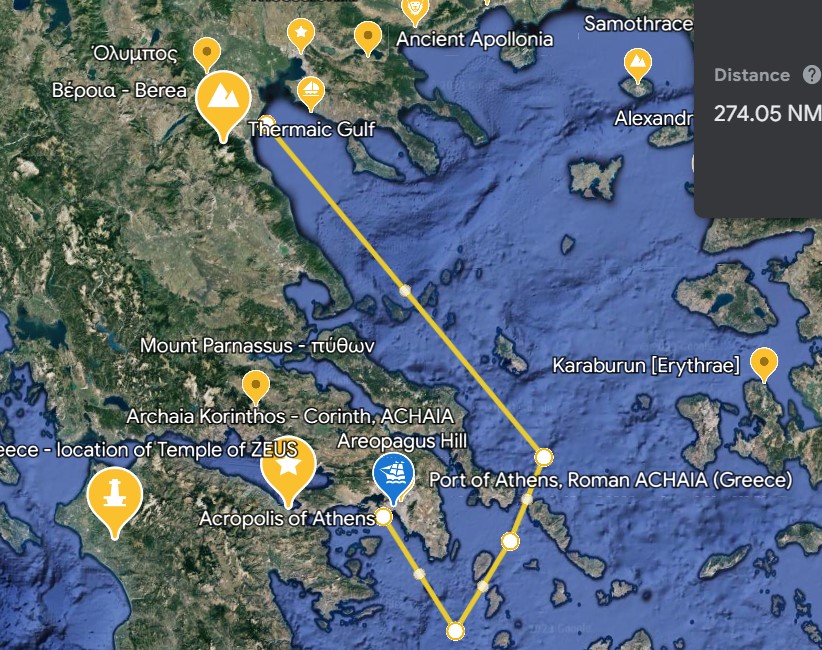
Sailing from Macedonia to Athens
Although fleeing the Jews we must think of Paulos as a ROMAN citizen on some sort of commercial Roman ship traveling from Macedonia to Achia. Yes, the destination of his ticket in Athens – a city of a 300 year old fading glory – but the more important city of Roman Achia is now Corinth.
What is more important here along Paul’s nearly 300 mile journey here is the context of culture so evident as he sails to Athens and then walks through the entrance of a city steeped in its former Hellenist glory.
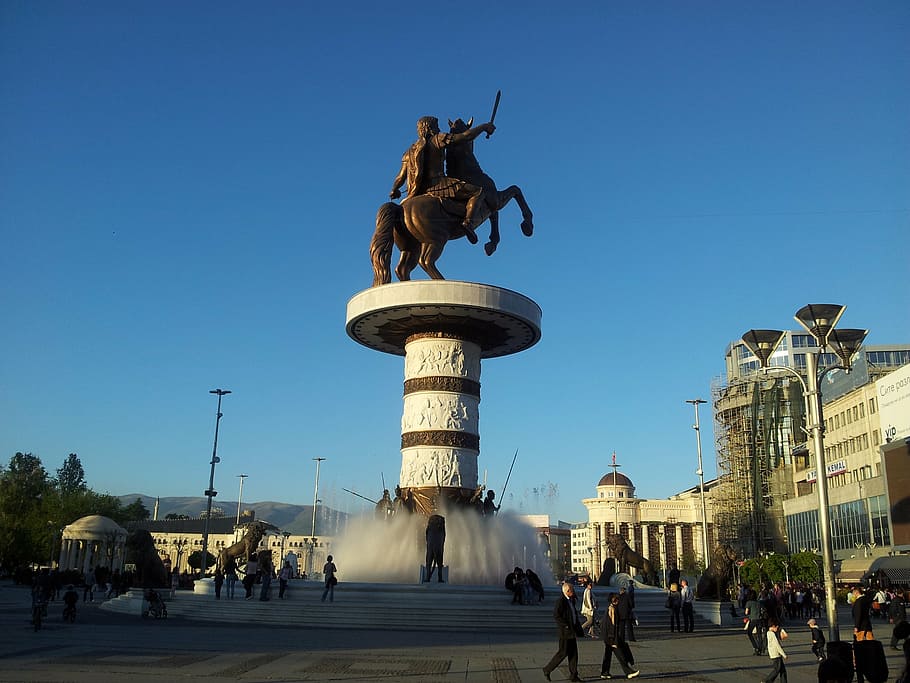
This modern-day statue of Alexander the Great in Thessaloniki, Greece partially demonstrates this Macedonian’s lasting influence even since his death in 323 B.C.
Paul would have no sooner left port in Macedonia than all would have viewed the great mountains of Greek mythology on their starboard side.
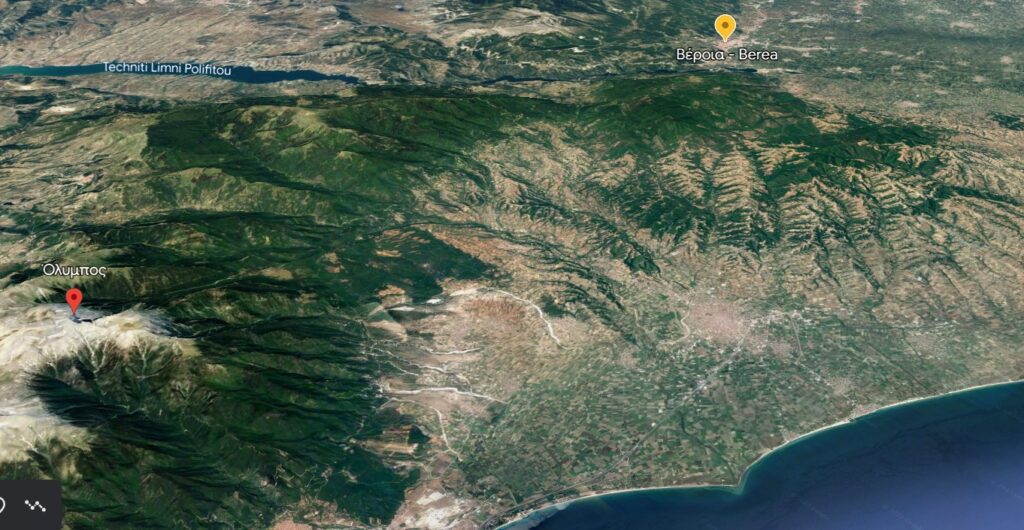
(We will approach these gods Zeus and others upon arrival in Athens.)
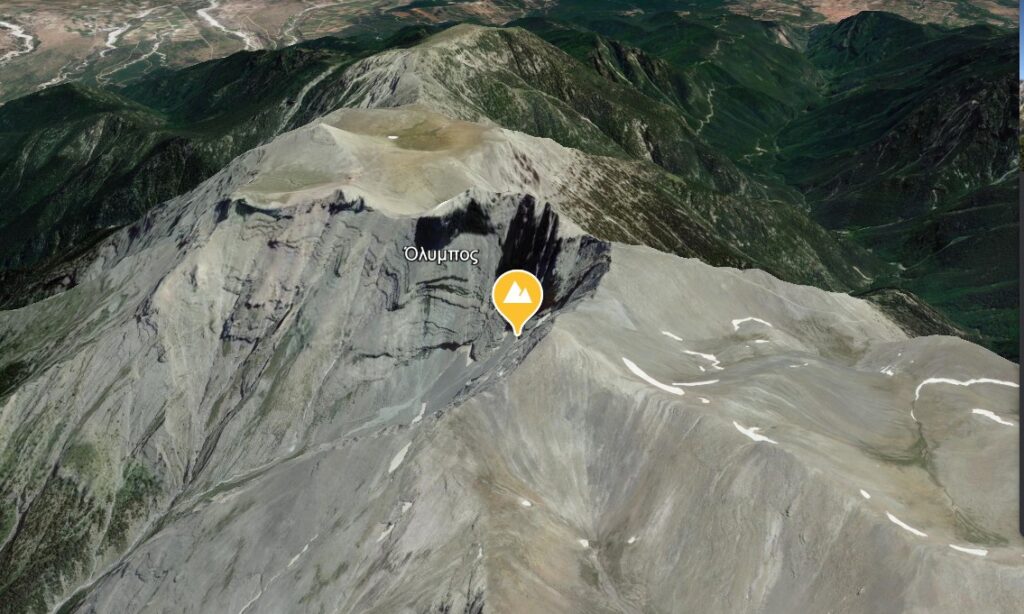
As we noted earlier the apostles’ journey along this mountainous coast of about 300 miles takes them from Macedonia (with its Alexandrian history) to Achia, the Roman region of strategic importance which includes Corinth on an inland isthmus and the port of Athens, formerly devastated by war but brought back to prominence by Rome as a ‘free city.’
Approaching Athens
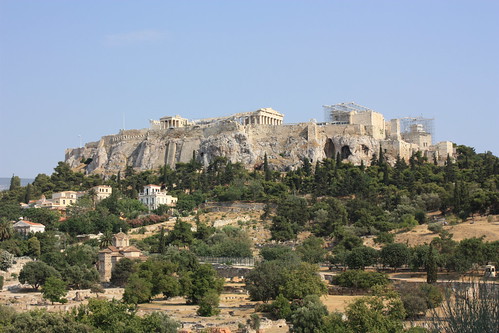
As their commercial Roman sailing ship rounded mountains descending into the Aegean on their approach Athens, Paul would have seen ruins of the destroyed Acropolis appear on the hill to their starboard side prior to their ship docking in port.
acropolis comes from the Greek words ἄκρον (akron, “highest point, extremity”) and πόλις (polis, “city”). – source – Flickr (same as photo)
Upon arrival, as we noted last time, Paul sent his Berean brothers back to let the church know that he had arrived safely — again a 300 mile return trip while the Apostle Paul takes in the sights of this ancient ruined Greek city of Hellenist influence and lessor free city of Rome gaining the attention of its Emporer (a Caesar and god of the people).
Visitors to the Athens of A.D. 50 would have walked along streets lined with monuments and statues as they ascended the hill into the city and its agora (marketplace).
Unknown gods and goddesses
Now while Paul was waiting for them at Athens, his spirit was being provoked within him as he was observing the city full of idols.
Acts of the Apostles 17:16
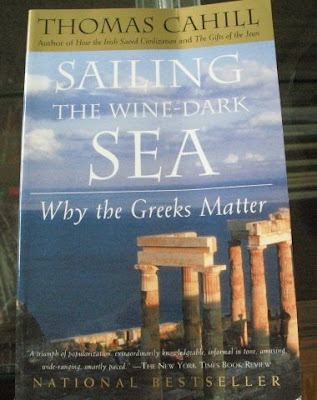
NOTE: Although I have researched several sources as a background for Paul’s Acts 17 speech in Athens, you will find this one most useful and detailed. – Roger@TalkofJesus.com
https://thomascahill.com/books
YOU and I cannot fully understand Paul’s more contemporary knowledge of his first century A.D. context of clashes between Hellenist, Roman and Hebrew cultures; however after a brief overview of the text we will take a glance at Athens through the A.D. 50 eyes of all.
Acts of the Apostles 17:

17 So he was reasoning in the synagogue with the Jews and the God-fearing Gentiles,
and in the marketplace every day with those who happened to be present.
18 And also some of the Epicurean and Stoic philosophers were conversing with him. Some were saying, “What would this idle babbler wish to say?” Others, “He seems to be a proclaimer of strange deities,”—because he was proclaiming the good news of Jesus and the resurrection. 19 And they took him and brought him to the Areopagus, saying, “May we know what this new teaching is which you are speaking? 20 “For you are bringing some strange things to our ears. So we want to know what these things mean.”
Luke now inserts a parenthetical glance at our 1st century A.D. philosophers of Athens.
21 (Now all the Athenians and the strangers visiting there used to spend their time in nothing other than telling or hearing something newer.)
Luke's account continues from ACTS 17:22 'So Paul stood in the midst of the Areopagus.. We will listen to the apostle to the gentiles addressing the men of Athens next time, but first some CULTURAL CONTEXT.
The Jews (in the eyes of Athens)
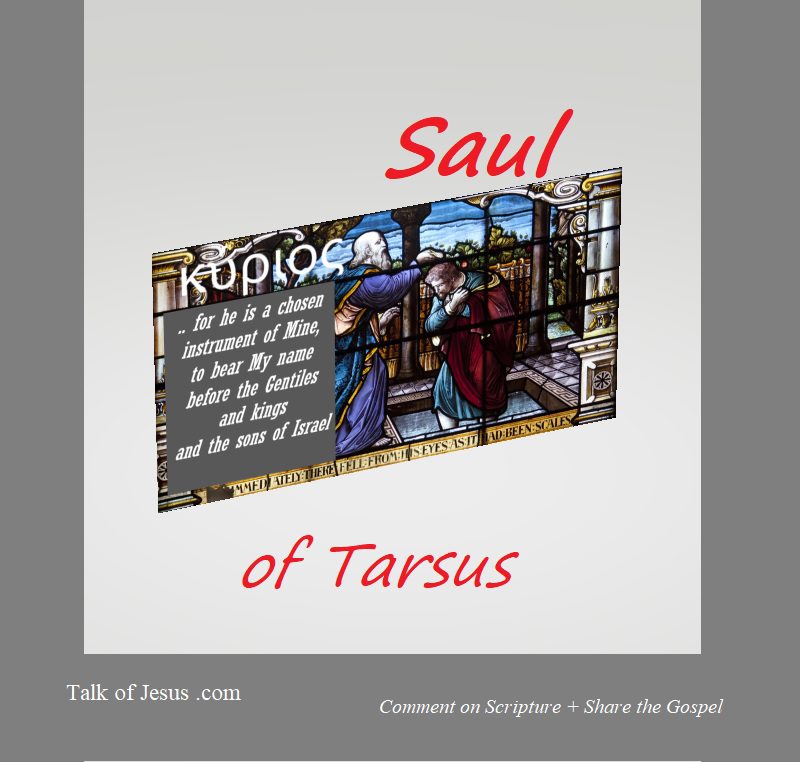
Saulos of Tarsus frequented the synagogues of his Hebrew brothers first in many other cities. He is a Pharisee who had believed in the Resurrection even prior to meeting the risen Messiah Jesus (same as Joshua in Hebrew) live and in Person.
This belief in the resurrection of JESUS, Ἰησοῦς in the common Greek language, yᵊhôšûaʿ or Joshua in Hebrew, held by some Pharisees and some Essenes but not the Jewish sect of the Sadducees attracted Pharisaic Jews and proselytes to Christ’s fulfillment of Hebrew Scripture.
Jews were merchants who mostly seemed to fit into the Pax Romana like any other religious culture except for one strange belief: Jews only had One God.
An even more strange belief of some Jews about what happened to the body after death seemed somewhat ghoulish. (Just imagine some neighbor walking around Athens after he died — laughable!) What a strange belief of some of these Jews.
For the Jews, who had little or no belief in the immortality of the soul, only salvation in one’s body could have any meaning.
Thomas Cahill, Why the Greeks Matter, p.260
The ‘peace’ of Rome accomplished in Athens by conquest was tenuous. Athenians and Romans were somewhat suspicious of Jews who the Emperor Claudius had just expelled from Rome.
Therefore, just as Saul of Tarsus had fled Macedonia secretly and swiftly, Jews in Achia and other cities of the Roman Empire most likely worshiped somewhat ‘under the radar’ in A.D. 50 so as to peaceably blend in with other Greeks.
As to Jewish cultural traditions of the past, Hellenist and Roman alike would have admired the great Jewish Empire of Solomon which was even more ancient than the centuries-old fallen glory of Alexander of Macedon who also conquered all of the world including the ancient cities of Greece.
To the Hellenist eyes of Athenian philosophers Jewish wisdom differed from their own ancient Greek wisdom. Paul understood both.
.. a Hebrew mode of argument .. proceeds by assertion and contrast rather than step-by-step reasoning [of ‘Socratic method’]
Thomas Cahill, excerpt ibid. p.165
17 So he was reasoning in the synagogue with the Jews and the God-fearing Gentiles
Dialogue with men in the Agora
.. and in the marketplace G58 every day with those who happened to be present.
You might think that based on previous witness in other cities the apostle would have steered clear of the agora where everybody who’s anybody gathers in town.
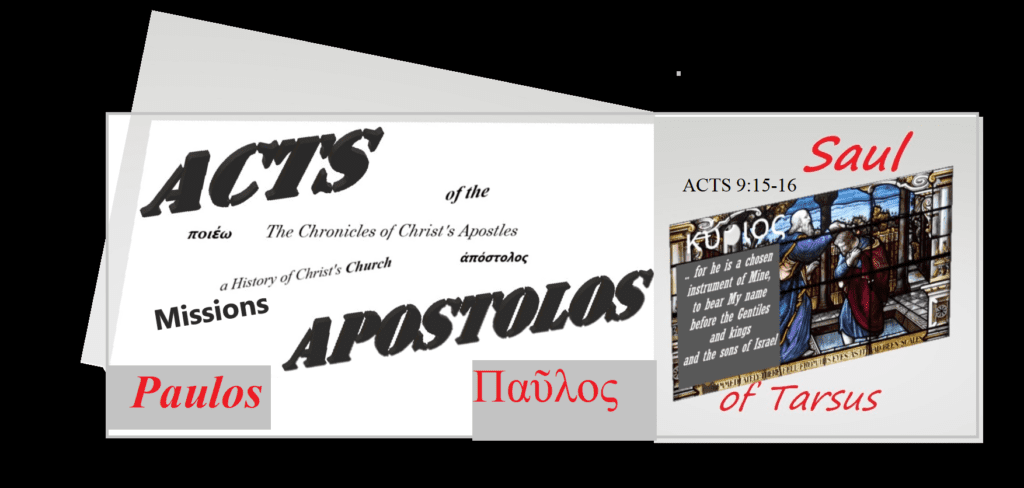
Paulos, sent out by Christ to the world of the Greeks, is a Roman citizen with a public duty, a Greek-speaking orator with a heart for the One God revealed in Hebrew Scripture and by the Messiah and the Spirit of the Living God.
This visitor to Athens brings a unique perspective to Roman authorities and citizens of this free Roman city in addition to an appeal to traditional and classic Greek values represented in-part by their many gods.
The agora in Athens is crowded with Gentiles EVERY DAY.
ἀγορά –
- any assembly, especially of the people
- the place of assembly
- market place, street
The Greek or Hellenist or Roman agora is a multi-purpose public place.
For: public debating, in-person democratic elections, trials, for buying and selling and all kinds of business
Aristotle & the pantheon of Athenian gods of philosophy
Classic Greece is long gone. Aristotle died in 322 B.C., his student Plato in 347 B.C. and Socrates had accepted his death sentence of hemlock for disbelief in the gods of Athens way back in 399 B.C.
~A.D. 50
Acts 17:18
And also some of the Epicurean and Stoic philosophers were conversing with him.
Who are these endless debaters of the Agora?
Some were saying, “What would this idle babbler wish to say?”
Others, “He seems to be a proclaimer of strange deities,”—because he was proclaiming the good news of Jesus and the resurrection.
Classic Schools of Philo-sophy [love of wisdom]
Roman and Hellene aristocratic families would send their young men to Athens. It’s schools included: Cynicism, Stoicism, Skepticism, Epicureanism and others. Among these that Paul would have encountered:
Stoics taught virtuous detachment from the physical things of the world (a sort of monastic approach). Epicureans taught to love of life and pleasure much to the liking of most powerful Roman and well-healed Greek men celebrating so many festivals of various gods with little thought of wisdom at all.
In fact, over the centuries since the esteemed Greek philosophers Athens and other Hellenist cities had had so many varied festivals and pantheons of gods that no man could truly remember them all.
THE LOVERS OF WISDOM continually TALKED about gods and religion as a contest between PHILOSOPHERS seeking advantage over their opponent without seeking the TRUTH of the LOGOS which the Apostle Paul was about to present.
And they took him and brought him to the Areopagus
Acts of the Apostle Paul in ATHENS — To be continued…
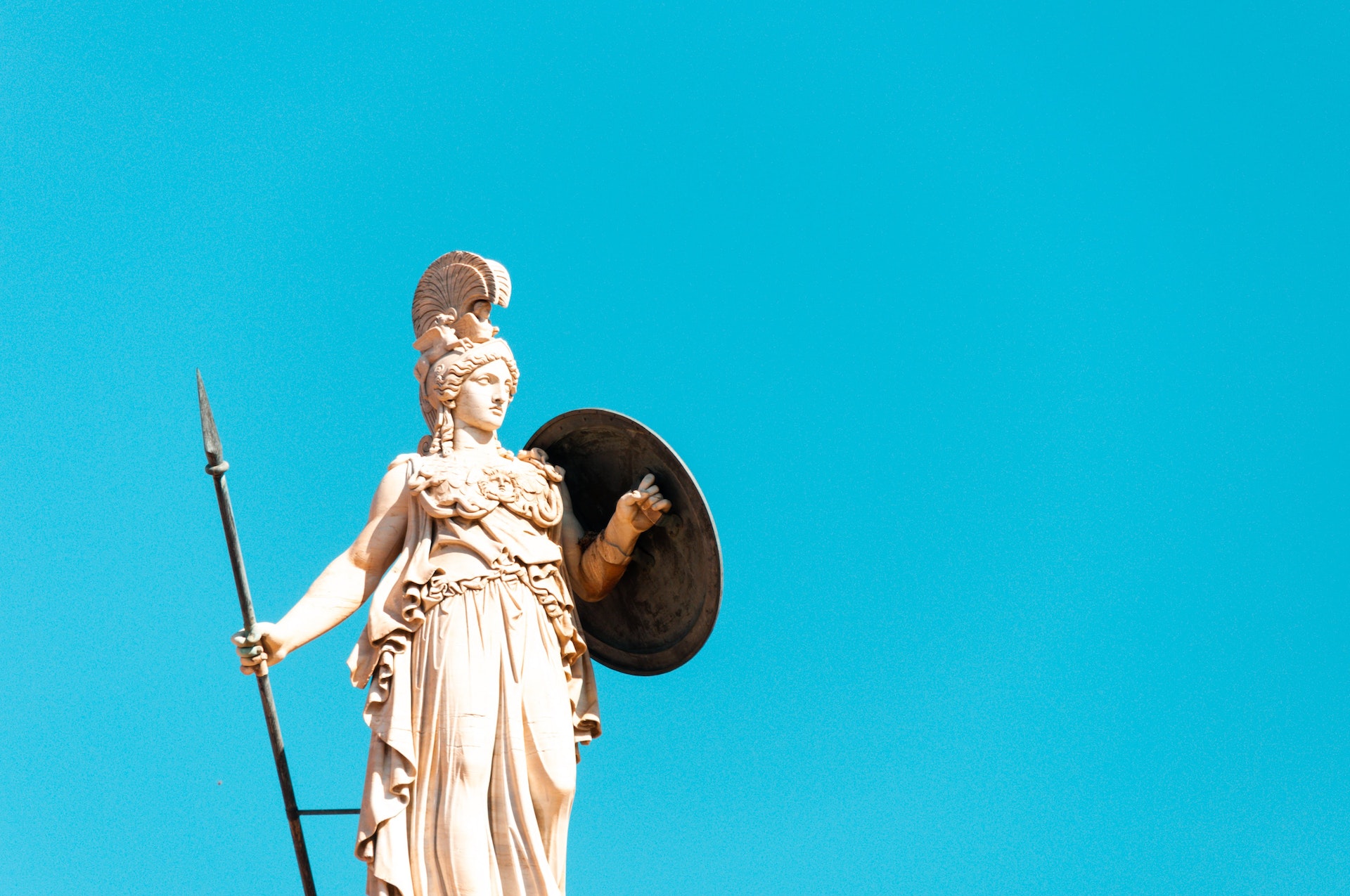

Leave a Reply